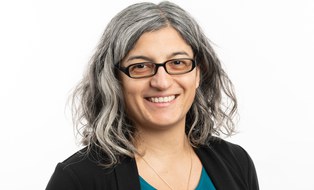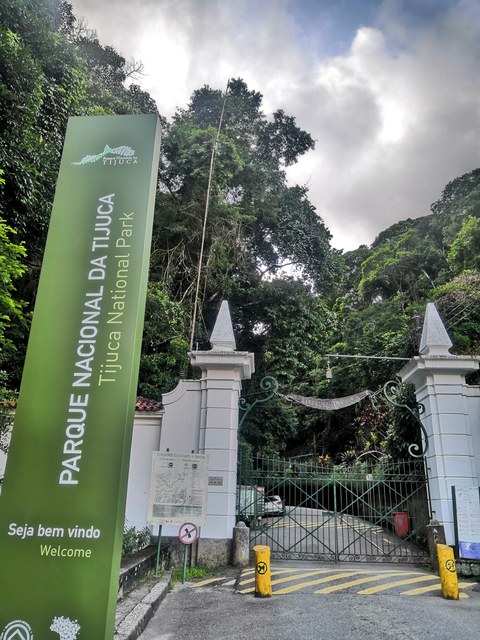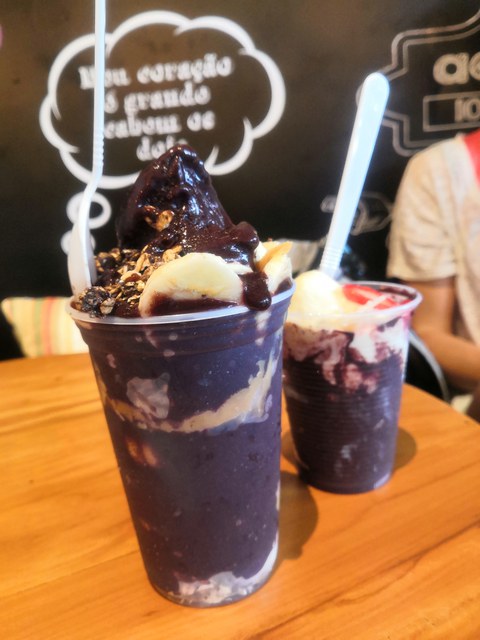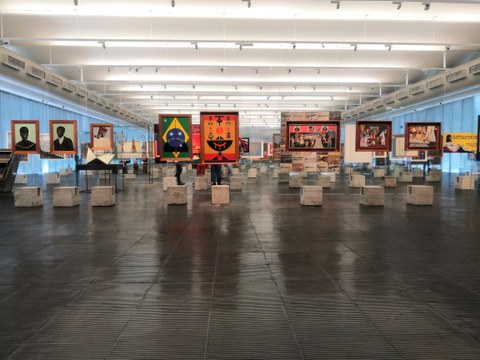Partner Country of the Month January 2021: Brazil
Brazil stands for joie de vivre, sun, soccer, samba and so much more. At the same time, many negative headlines are associated with this country, be it corruption, environmental destruction or poverty in the favelas. As the only Portuguese-speaking country in South America, it often has a more difficult standing than its Spanish-speaking neighbors when it comes to study exchange ambitions, but that doesn't have to be the case! Brazil is incredibly large and accordingly has a huge variety of fantastic places, natural wonders, cities and history to discover.
With the "Partner Country of the Month" campaign, we want to shine a spotlight on the wide diversity of countries, regions and partner universities of TU Dresden that our students can explore during a semester abroad.
Table of contents
General facts and figures about Brazil
Capital: Brasília
Population: 212.6 million (2024)
Official language: Portuguese
National holiday: 7 September
Currency: Real (BRL)
You can find further facts, figures and information on Wikipedia or Visit Brazil.
Language matters
- Hello - Olá
- How are you? - Tudo bem?
- My name is ... - Meu nome é ...
- Please - Por favor
- Thank you - Obrigado/a
(Brazilian) Portuguese is the only official language of Brazil, as well as the native tongue of at least 97% of the population. Indigenous languages are only spoken by about 0.1% of the population (e.g. Guaraní, Makú, Tupi and Gês). In total, 188 different languages and idioms are spoken in Brazil. Did you know that up to 1.5 million Brazilians speak German natively, making it the second most spoken native language in the country?
For most universities in Brazil, Portuguese skills are needed for your application, although more and more courses are also available in English. Please check the exact requirements at your university of choice before applying.
At TU Dresden, TUDIAS offers free Portuguese courses at various levels. Additionally, students of all discipline can register to study Regional Sciences Latin America (ReLa) to learn more about history, society, culture and economy of the region, as well as advanced language skills.
Did you know that ....?
- São Paulo has the largest community of Japanese outside Japan? They began immigrating more than a hundred years ago. Today, 1.5 million Brazilians of Japanese descent live in the country. The Liberdade neighborhood in São Paulo is considered the center of Japanese culture in Brazil.
- Brazilian prisoners can reduce their prison sentence by four days for every book they read and summarize in a report?
- voting is compulsory in Brazil? Non-voters face a fine.
- there is no outdoor advertising, such as billboards, in São Paulo? A strict ban on outdoor advertising was introduced in the Brazilian city in January 2007. The "Clean City Law" removed 15,000 billboards and 1300 giant posters. There are no more giant billboards, posters, neon signs that eat up electricity, or advertising on vehicles.
- there are around 70 uncontacted tribes in the Brazilian Amazon? In 1988, the Brazilian government founded the special unit Coordenação Geral de Indios Isolados (CGII) to protect these peoples. The CGII is supposed to "accompany" newly discovered groups unnoticed from a great distance and is only allowed to make contact if the communities are endangered by illegal logging or digging for resources.
Cooperation with TU Dresden
You can find an overview of all cooperations of TU Dresden, which you can use for the exchange, in our database. It is also often worth asking professors in your own faculty who might have direct contact to the desired partner university.
Our partner universities in Brazil
- Faculty cooperation - International Relations
- Fundação Getulio Vargas in São Paulo
- Interdisciplinary cooperation via TUDworldwide
-
Pontifical Catholic University of Rio de Janeiro (PUC Rio)
-
In addition to courses in Portugues, PUC Rio also offers a wide range of courses in English. Participation in Portuguese courses is mandatory.
-
- Universidade Federal de Santa Catarina (UFSC) in Florianópolis
-
Virtual info session of PUC Rio during TUD's International Day 2020
Don't miss...
A trip to the Tijuca national park. The Tijuca Forest in Rio de Janeiro is one of the largest urban forests worldwide. The land has been reclaimed and reforested. There are plenty of opportunities for hiking trips, beautiful attractions like Christ the Redeemer or the Cascatinha Waterfall, as well as amazing wildlife and plants.
Açaí na tigela. Açai, a small purple berry that comes from palm trees in the Amazons, is considered a super food with amazing health benefits. It has become a staple in food stalls and juice bars along the northeastern coast. There are countless varieties with all kinds of toppings for you to try.
Museu de Arte de São Paulo (MASP): Its headquarters, a 1968 concrete and glass structure whose main body is supported by two lateral beams over a 74 metres freestanding space, is considered a landmark of the city and a main symbol of modern Brazilian architecture. The museum is internationally recognized for its collection of European art which is considered the finest in Latin America and all of the Southern Hemisphere.
The Iguaçu Falls are are located on the border between Brazil and Argentina. The waterfall system consists of 275 falls along the Iguazu River. The most impressive of them is the Devil's Throat, a U-shaped gorge 150 meters wide and 700 meters long.
In Dresden, there are many options to get to know typical Brazilian culture and joie de vivre. How about the acrobatic martial arts dance Capoeira, drumming and dancing Samba, or Brazilian Zouk, a flowing and modern partner dance? Some of them are also offered as DHSZ courses.
Let's get cooking...
Brazilian cuisine is as diverse as the country itself. As we don't want to bore you with Caipirinha or overwhelm you with complex recipes, we have opted for Pão de Queijo, airy little cheese puffs that taste like a fluffy piece of pure happiness when freshly baked. These little cheese balls are a popular snack that is often sold as street food in Brazil. Pão de Queijo comes from the state of Minas Gerais, and, like many other Brazilian dishes, derives from the food prepared by African slaves in the 18th century. Ingredients such as milk and cheese were added later. Today, there are many different varieties. You can find a recipe at oliviascuisine.com.
Contact
Have you had a great time Brazil? Did you attend the carnival? Spend a successful semester abroad in São Paulo? Do you have tips for places and experiences that are not to be missed? We would be happy to share your experiences here, on social media or, if you want, in information events for other TUD students. Get in touch with us:
 © Sven Ellger/TUD
© Sven Ellger/TUD
Advice on studying abroad
NameMs Federica Serra
Infocenter/ Study abroad; TUDworldwide: America
Send encrypted email via the SecureMail portal (for TUD external users only).
Visiting address:
Fritz Foerster Bau, Office 161 Mommsenstraße 6
01069 Dresden
Postal address:
TUD Dresden University of Technology International Office
01062 Dresden
Office hours:
- Tuesday:
- 09:30 - 11:30
- 12:30 - 14:30
- Thursday:
- 09:30 - 11:30
Please register at the SCS (FOE, floor 0).
Looking for first-hand information?
Would you like to know more about Brazil? Ask our alumni ambassadors - TUD alumni who are active in many countries around the world and can give you information and advice for your stay abroad.
Getting in touch is very easy: On this interactive world map, markers indicate the cities where our alumni ambassadors live. There is a short profile with contact information for each ambassador.
Partner Countries Archive
Have you missed a partner country? No problem! Here you can read up on all articles.
|
Europe (Erasmus+) |
|
|
Africa |
|
|
America |
|
|
Asia |
|
|
Australia and Oceania |
|






